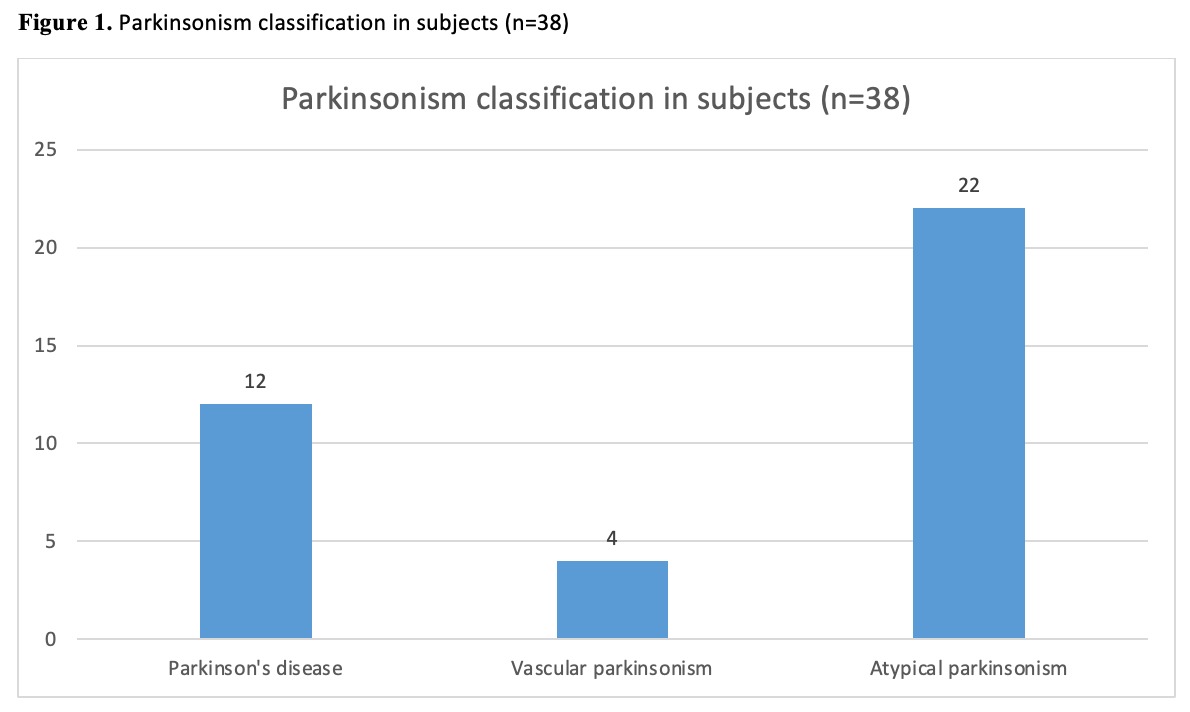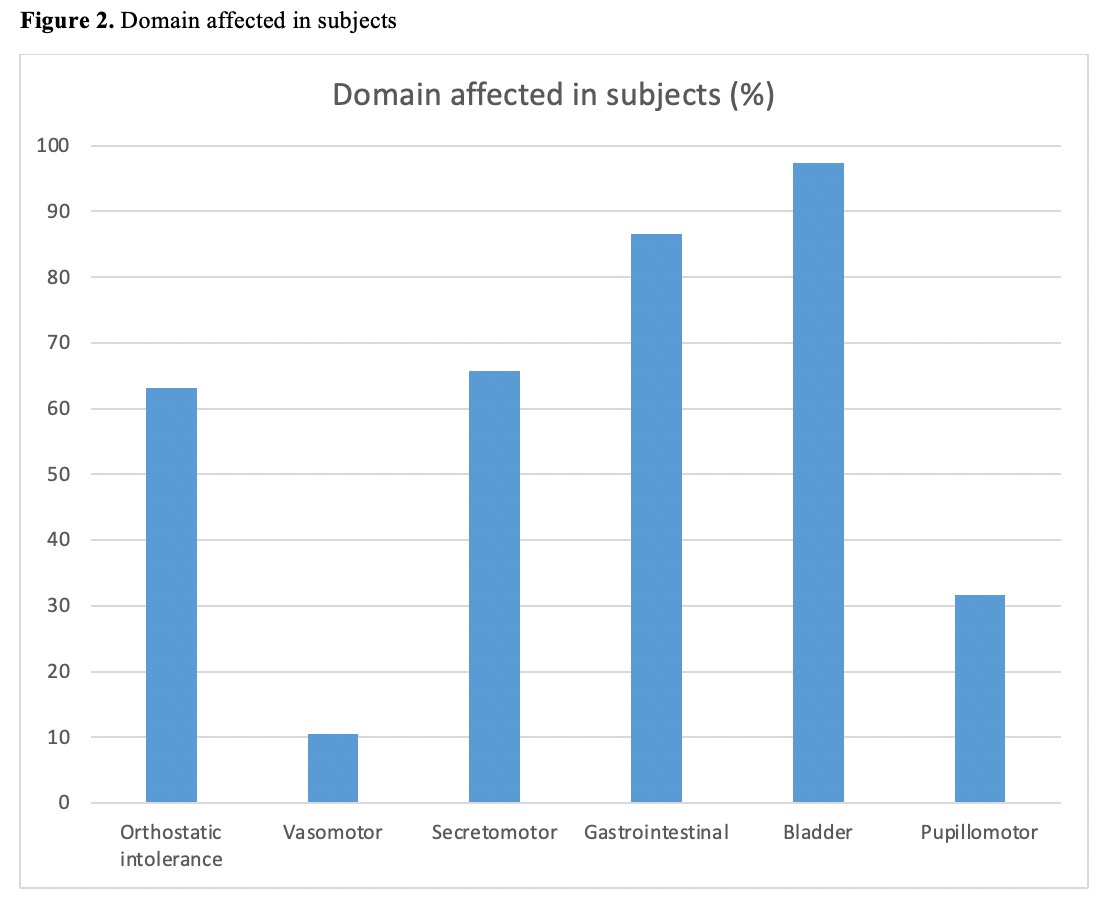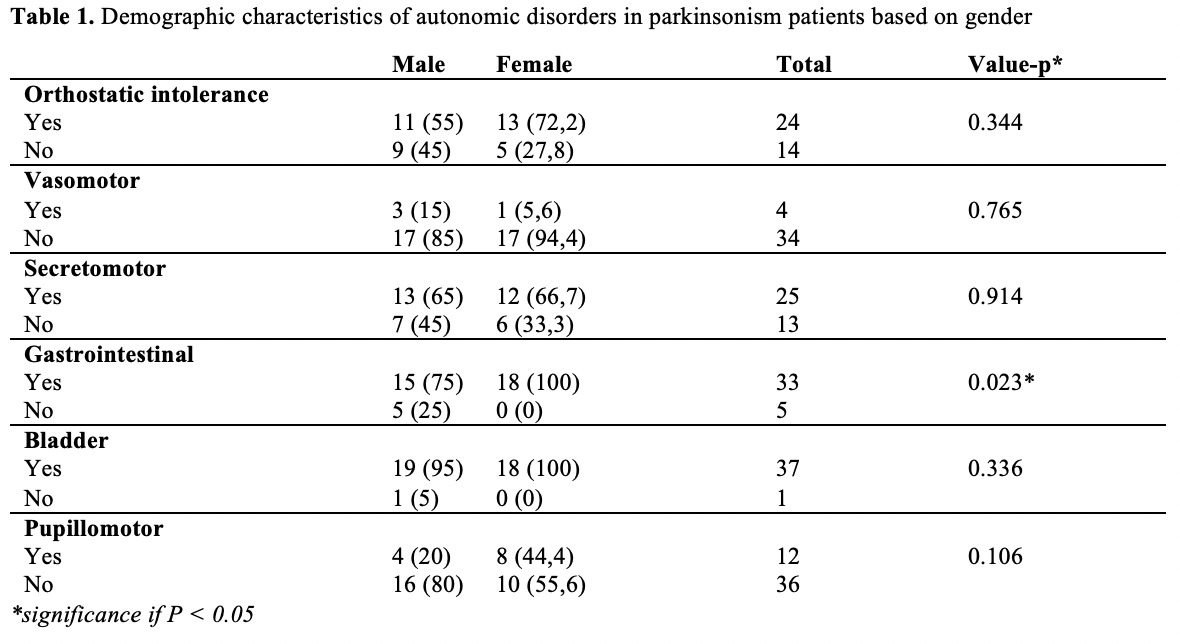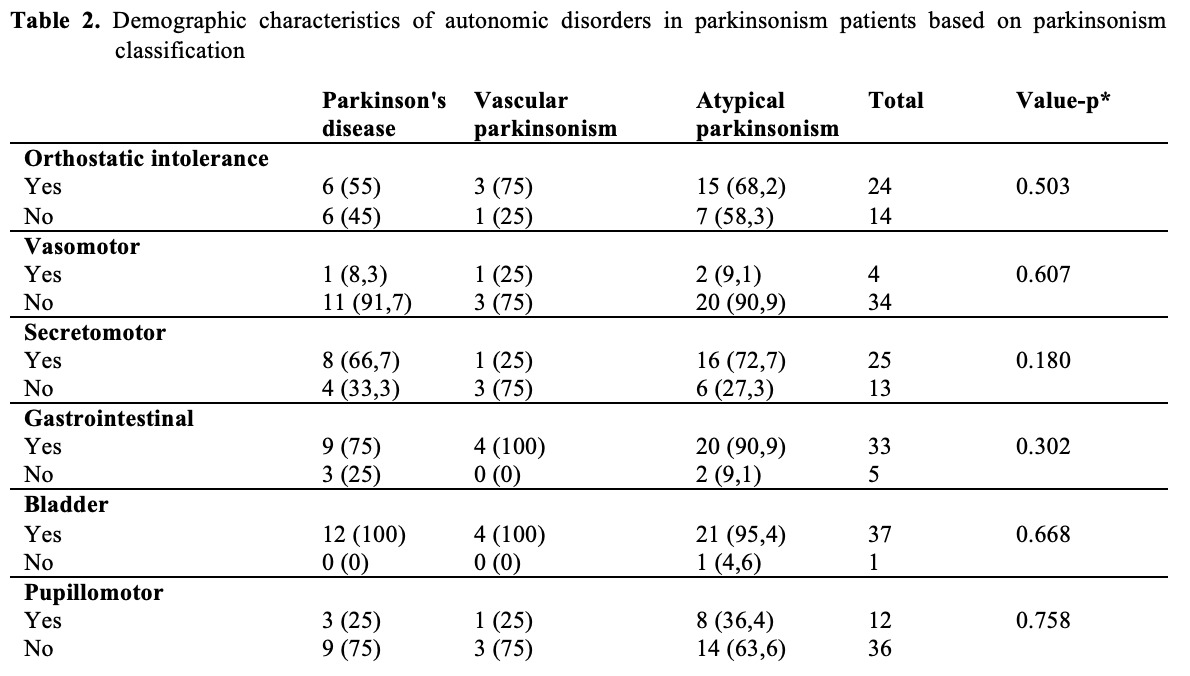Category: Parkinsonism, Others
Objective: The study aims to describe the manifestations of autonomic disorders, including symptoms and related factors, in Parkinsonism cases
Background: Parkinsonism is a progressive neurodegenerative disorder characterized by motor and non-motor features. Autonomic disorders are one of the non-motor symptoms that significantly affect the quality of life. The Composite Autonomic Symptom Score (COMPASS-31) is a self-assessment instrument for evaluating patients with autonomic symptoms consisting of six domains of autonomic function (orthostatic intolerance, vasomotor, secretomotor, gastrointestinal, bladder, and pupillomotor)
Method: Parkinsonism patients were recruited during routine clinical visits at Cipto Mangunkusumo Hospital and asked to fill out the Composite Autonomic Symptom Score (COMPASS)-31 questionnaire. Various demographical and clinical features relationships were analyzed. All statistical analyses were assessed using the SPSS version 26
Results: A total of 38 subjects participated in the study. Atypical parkinsonism was the most common parkinsonism in all of the subjects (57,9%) [Figure 1]. Most of our subjects had earlier onset (<5 years), with a median of 2.5 years. The proportion of male and female subjects was equivalent, with a mean age of 63.29 years old (59.12-67.46). All subjects experienced autonomic dysfunction symptoms, with most subjects having multiple domains. The urinary disturbance was the most common symptom (97.4%), followed by gastrointestinal (86.8%), secretomotor (65.8%), and orthostatic intolerance (63.1%) [Figure 2]. We found consistent results that most autonomic dysfunction was more common in the female group, with a significant association between the female gastrointestinal domain (P = 0.023) [Table 1]. Most autonomic dysfunction was found more common in atypical and secondary Parkinsonism, compared to idiopathic Parkinson’s Disease [Table 2]. Autonomic dysfunctions more commonly occurred in the <60 years old group, with a significant association between orthostatic intolerance and the younger age group (P = 0.027). Multiple domains were found more common in the earlier onset group (<5 years).
Conclusion: Autonomic symptoms are common in parkinsonism, especially with female subjects, secondary and atypical parkinsonism, with multiple autonomic dysfunction domains. The urinary disturbance was the most common feature, followed by gastrointestinal symptoms.
To cite this abstract in AMA style:
D. Tunjungsari, A. Tiksnadi. Clinical Manifestations of Autonomic Dysfunction in Parkinsonism Assessed by COMPASS-31 Questionnaire [abstract]. Mov Disord. 2022; 37 (suppl 2). https://www.mdsabstracts.org/abstract/clinical-manifestations-of-autonomic-dysfunction-in-parkinsonism-assessed-by-compass-31-questionnaire/. Accessed July 15, 2025.« Back to 2022 International Congress
MDS Abstracts - https://www.mdsabstracts.org/abstract/clinical-manifestations-of-autonomic-dysfunction-in-parkinsonism-assessed-by-compass-31-questionnaire/




